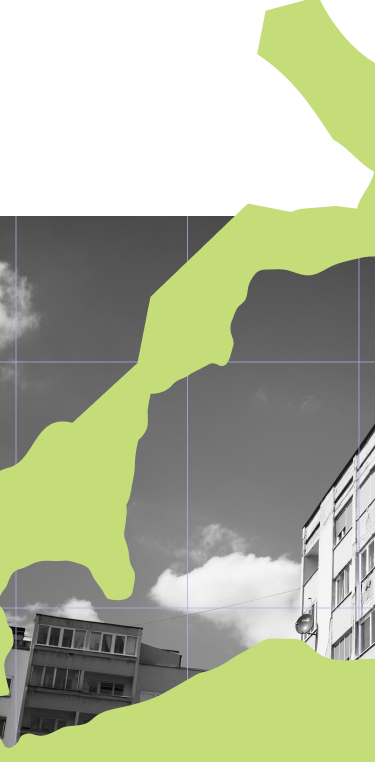Reconstruction of ecosocial ideas and analysis of philosophical ecosocial imagination concepts within the context of (post)authoritarian landscape studies, exploring new forms of human self-conception and ways of thinking arising from re-conceptualizing human relations with the environment.
Research
The concept of “(Post)Authoritarian Landscapes” is not confined to any particular geographical region, political system, or economic framework. Instead, it explores the existence and spatial dynamics of non-democratic societies, as well as their enduring legacies.

Research groups
Ecosocial Ideas Research
Kristupas Sabolius, Head of Group
Kristupas Sabolius, Mintautas Gutauskas, Vaiva Daraškevičiūtė, Alice Iacobone, Anda Pleniceanu
Cultural Landscape Research
Tomas Vaiseta, Head of Group
Camille Robert-Boeuf, Darijus Veteikis, Gintautas Vėlius, Ieva Misiūnė, Jurgita Mačiulytė, Nerijus Šepetys, Ričardas Skorupskas, Rugilė Rožėnė, Tomas Vaiseta
The Cultural Landscapes of 20th Century (Post)Authoritarian States research group is madeup of geographers and historians who combine the methods of physical and social geographyand history to study cultural landscapes and their changes. This group seeks to study andcompare the cultural (urban, agrarian, natural landscapes affected by political and socialprocesses and events) landscapes that have been formed and shaped in different authoritarianand post-authoritarian states, the political, economic, social, technological objectives ofauthoritarian and post-authoritarian governments and their resulting interventions in, oradaptations to, the environment, and the patterns of spatial management and organisationused in the Soviet republics and in other authoritarian states. Current research has begun onthe impact of Soviet collectivisation on cultural landscapes and their changes since 1990, theimpact of modern migration on agro-cultural landscapes, natural landscapes as sites ofHolocaust perpetration and memory, etc.
Activities
Ecosocial Development Research
Tadas Šarūnas, Head of Group
Antanas Terleckas, Dalia Čiupailaitė-Višnevska, Ingrida Gečienė-Janulionė, Karolis Jonutis, Marius Ėmužis, Tadas Šarūnas, Ugnė Gudžinskaitė
The wave of political transformations and radical economic restructurings that swept through post-authoritarian countries at the end of the last century fundamentally altered the assumptions about the relationship between these societies and their cultural and natural environments. Throughout history, political, technological and economic interventions in the natural environment have left a deep imprint on landscapes. Post-authoritarian societies are simultaneously coming to terms with this legacy, but are also reinventing their relationship with the environment. This context offers unique opportunities to develop social research methodologies that deepen our understanding of society’s relationship to cultural (urban, agrarian) and natural landscapes. <From this point we can expand “read more”> Taking advantage of the uniqueness of these countries, we address the following themes and questions:
Ecological attitudes: How does the social context influence people’s attitudes towards and relationships with the natural environment? How are environmentally friendly or damaging practices socially shaped? Are forms of political identification and political mobilisation transformed in the Anthropocene?
Symbolic meanings: How are the signs of (urban, rural or natural) landscapes used in the struggles for the definition of local identity? What are the social preconditions for the (re)valuation of architectural, urban and natural heritage? What are the differences and similarities between territorial stigmatisation in post-authoritarian states and other countries.
Spatial inequalities: How do contemporary housing regimes influence the formation of social segregation in urban and rural areas? How do the diversity of housing stock, the distinctiveness of the natural and urban environment and the tastes of people of different social status influence the social values of urban landscapes? What are the embedded experiences of social inequalities in areas that have experienced authoritarian regimes and economic restructuring?
Transformations of capitalism: How do land tenure regimes and the social structures that support them affect natural and cultural landscapes? How would a capitalist diversity approach help to reshape the research agenda in environmental sociology? How do the examples of countries that have experienced economic and political transformations after authoritarian regimes stand out in these respects?
By examining the examples of (post-)authoritarian countries, we try to understand how the radical transformations of these countries can stimulate the political imagination. By observing people’s newly emerging local relationships with their environment, we are also looking for answers to the practical questions that arise in the context of global challenges. Our research aims to enable qualitatively new attitudes and relationships with the natural and cultural environment.
Activities
Cultural Landscapes and Heritage Research
Marija Drėmaitė, Head of Group
Marija Drėmaitė, Viltė Janušauskaitė, Elda Muco, Ineta Šuopytė-Butkienė
This interdisciplinary research group examines the history and heritage of cultural landscapes (urban, industrial, architectural, agrarian, natural) in authoritarian states and following periods of transformation. It analyzes the construction and current state of these landscapes and built environments, societal perceptions towards them, issues of recognition, collective memory, and socio-cultural challenges therein.
Activities